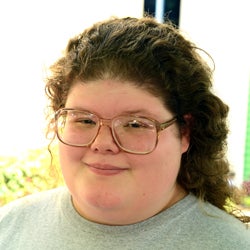Epilepsy
“It is a wise father who knows his own child.” – William Shakespeare It was a shift gone unnoticed by everyone but Robert Struble. His then-12-year-old daughter, Robin, would stare into space and cease to speak. The episodes would end as soon as they began, each one fleeting – over in a flash. “As time went by, it became more noticeable,” said Struble, a single father who booked Robin an appointment with a neurologist to find answers. “He kept saying she didn’t have epilepsy and I never said she did, but I knew there was something wrong with her and I needed to find out what it was.” Robin’s symptoms worsened despite her initial EEG tests coming back clear. Struble recalled an episode when Robin boarded the school bus one morning, then immediately got off the bus and returned home. She lost track of time and assumed it was afternoon. “Over time, the seizures became longer and occurred more often,” Struble said. “It began to affect her schooling. The children made such bad fun of her and the teachers didn’t want to deal with her.” Robin did indeed have epilepsy, which led Struble to contact Children’s of Alabama. Robin underwent a series of EEG tests to monitor the electrical activity in her brain. She also underwent surgery to implant a vagal nerve stimulation (VNS) device that, paired with medication, may help lessen the number and intensity of seizures. Robin’s seizures persisted. Now at 18 years old, Robin turned her attention to a new procedure at Children’s called MRI-guided laser ablation, trademarked as Visualase. It’s touted as less invasive than open-brain surgery and boasts a quicker recovery time. The procedure involves surgeons drilling a tiny hole into the skull and threading a catheter into the brain. Once the catheter is placed in the right spot, surgeons switch on a laser to destroy the tissue at the root of the seizures, watching it all happen through MRI images. Robin was deemed an eligible candidate for Visualase, and on Valentine’s Day 2017, she became the first patient to have the procedure at Children’s. Struble said the decision was Robin’s to make. Whatever her choice, Struble would support his daughter’s decision. “She’s the one who constantly said I want to do it and move forward. She wanted some type of normalcy,” Struble said. “I was the one who was more concerned, but she said, ‘Daddy, it’s going to be OK.’ She is a trooper and she has handled so much going through this.” Robin was discharged the day after the procedure and has not experienced a seizure since. “It makes me feel good,” Robin said of living seizure free. “I can work now!” Struble is doubly relieved – for the results and for Robin’s quality of life moving forward. “We’re truly blessed and thankful to the surgeons and staff at Children’s, everybody who took care of her,” Struble said. “She wants to work, she wants to drive, she wants to finish school … She can go in the direction of a normal life.”







